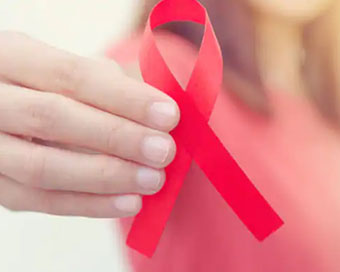 PM Modi visit USA
PM Modi visit USA Only the mirror in my washroom and phone gallery see the crazy me : Sara Khan
Only the mirror in my washroom and phone gallery see the crazy me : Sara Khan Karnataka rain fury: Photos of flooded streets, uprooted trees
Karnataka rain fury: Photos of flooded streets, uprooted trees Cannes 2022: Deepika Padukone stuns at the French Riviera in Sabyasachi outfit
Cannes 2022: Deepika Padukone stuns at the French Riviera in Sabyasachi outfit Ranbir Kapoor And Alia Bhatt's Wedding Pics - Sealed With A Kiss
Ranbir Kapoor And Alia Bhatt's Wedding Pics - Sealed With A Kiss Oscars 2022: Every Academy Award Winner
Oscars 2022: Every Academy Award Winner Shane Warne (1969-2022): Australian cricket legend's life in pictures
Shane Warne (1969-2022): Australian cricket legend's life in pictures Photos: What Russia's invasion of Ukraine looks like on the ground
Photos: What Russia's invasion of Ukraine looks like on the ground Lata Mangeshkar (1929-2022): A pictorial tribute to the 'Nightingale of India'
Lata Mangeshkar (1929-2022): A pictorial tribute to the 'Nightingale of India' PM Modi unveils 216-feet tall Statue of Equality in Hyderabad (PHOTOS)
PM Modi unveils 216-feet tall Statue of Equality in Hyderabad (PHOTOS)India Open Competition in Shotgun, organised by the National Rifle Association of India (N
- Hockey India names Amir Ali-led 20-man team for Junior Asia Cup
- Harmanpreet Singh named FIH Player of the Year, PR Sreejesh gets best goalkeeper award
- World Boxing medallist Gaurav Bidhuri to flag off 'Delhi Against Drugs' movement on Nov 17
- U23 World Wrestling Championship: Chirag Chikkara wins gold as India end campaign with nine medals
- FIFA president Infantino confirms at least 9 African teams for the 2026 World Cup
HIV/AIDS: Know Causes, Symptoms and Prevention (World AIDS Day 2020) Last Updated : 01 Dec 2020 02:27:34 AM IST 
HIV/AIDS World AIDS Day is observed on every 1st December to create awareness. AIDS is defined as an acquired immune deficiency syndrome also at times known as HIV. AIDS is a chronic condition that develops as a consequence of HIV infection which has annihilated the immune system of a person specifically the CD4 cells.
HIV virus attacks healthy white blood cells, which is our body’s natural defense system against illness. Any infected person who has HIV, and isn’t taking the right treatment, will find it difficult to fight off health problems and diseases.What causes HIV AIDS?Usually infected blood, semen or vaginal fluids need to move in your body for you to be infected with the virus. This can occur in several ways:-By having sex with an infected person.-During blood transfusions: At times the blood being donated is already affected by the virus and is carried onto another person receiving the blood.-Hospitals and blood banks now screen the blood supply for HIV antibodies, so this risk is little.-Using infected needles: Sharing of contaminated needles and syringes puts you at high risk of HIV and other infectious diseases, such as hepatitis.-During pregnancy and breast-feeding: Pregnant mothers infected with the virus have a chance of infecting their babies, although getting the treatment for the same during pregnancy can significantly lower the risk to infect the new born.Symptoms of AIDSSymptoms of AIDS are caused by the deterioration of the immune system and the decline of CD4+ T cells, which are the immune system's key infection fighters. As soon as HIV enters the body, it begins to destroy these cells. Some common symptoms include:-Diarrhea that lasts for more than a week.Dry cough.-Memory loss, depression and neurological disordersPneumonia.-Profound, unexplained fatigue.-Rapid weight loss.-Recurring fever or profuse night sweats.-Red, brown, pink or purplish blotches on or under the skin or inside the mouth, nose or eyelids.-Swollen lymph glands in the armpits, groin or neck.-White spots or unusual blemishes on the tongue, in the mouth, or in the throat.-Infections Associated with AIDSTreatment for HIV/AIDS
Although there is no definite cure for this virus, but with the timely and accurate treatment and support, people who are HIV positive, are able to control the situation. The medicine used to treat HIV is called antiretroviral therapy or ART. In order to live a better life it is especially important to commit to taking the treatment seriously. If people with HIV take ART as prescribed, their viral load (amount of HIV in their blood) can become undetectable. If it stays undetectable, they can live long, healthy lives and have effectively no risk of transmitting HIV to an HIV-negative partner through sex.
For Latest Updates Please-
Join us on
Follow us on








172.31.16.186







